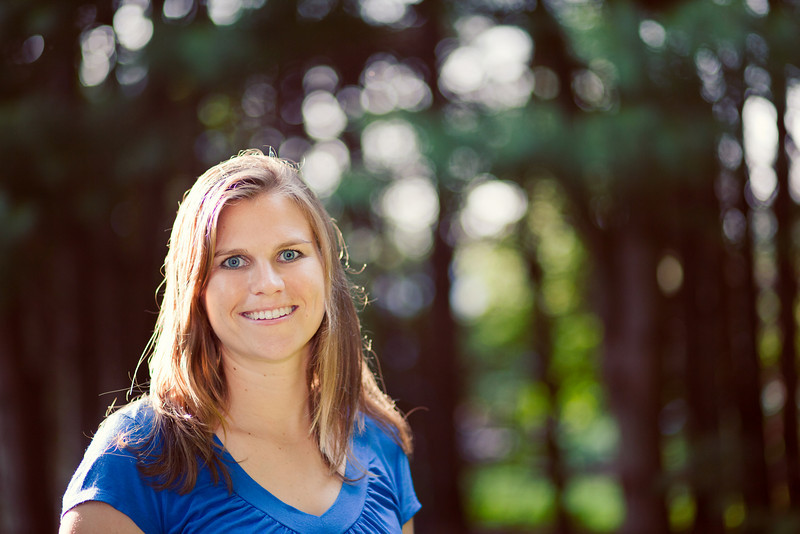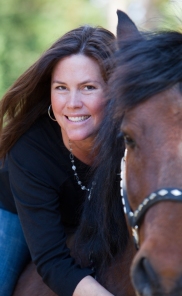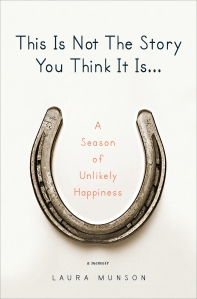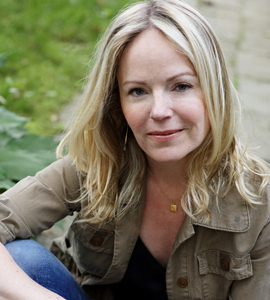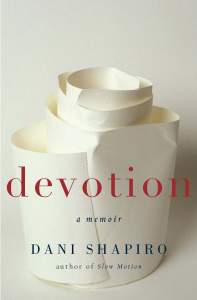If you’ve ever thought about giving up as a writer, this Q&A is for you. Laura Munson wrote 14 books over the last 20 years, while juggling responsibilities as a stay-at-home mom and freelance writer. But not one of those books was published — until now.
Laura’s a Modern Love success story. Her book, This Is Not The Story You Think It Is: A Season of Unlikely Happiness, garnered interest from publishers after her piece ran in The New York Times’ Modern Love column. I’m slightly obsessed with Modern Love, which is why Laura caught my eye. The column features short, narrative nonfiction by a different writer each week, and those who are lucky enough to get a byline often end up with a book deal.
Laura lives in northwest Montana. You can find her at her website (I love its look), on Twitter and on Facebook (fabulous interactive page).
Welcome, Laura! Tell us about your book. Why should we read it? What sets your memoir apart from others on bookstore shelves?
My book is called This Is Not The Story You Think It Is: A Season of Unlikely Happiness. Though a marital crisis is the entry point, true to its title, it’s not an angry, victim-stanced rant. Rather, it’s a book about empowerment. It’s about being responsible for your own well-being, even and especially when you’re in crisis. You don’t have to be married to relate to this book. It’s about a person’s commitment to end her suffering and you can plug that into any or no religion, and any relationship, namely your relationship with yourself.
What writing experience did you have before Modern Love picked up your column?
I’ve been writing for 20 years, and have completed 14 unpublished books. My short work has been published in literary reviews and regional magazines prior to my Modern Love piece. Since then, I’ve been published in The New York Times Magazine, O. Magazine, Woman’s Day, The Week, and The Huffington Post.
What prompted you to write the column for Modern Love? Did you know when you submitted it that writers who are published there often land book deals?
It’s really important in this economy and in the current publishing world for an unknown author to have a platform. I didn’t have one and my books were falling through the cracks even though a few of them almost went all the way. My agent, with whom I’d been signed for several years, told me about Modern Love and that it was a great platform for writers. I’d submitted to ML before, but gotten rejected. While I wrote This Is Not The Story You Think It Is in real time and felt it was ready to submit to editors, my agent felt that this might be a great platform for my work, so I decided to write the short version of my memoir, and send it in to ML. I heard back immediately that they wanted it, it was published a month later, the comments crashed the New York Times website, that Monday my agent sent the book out to editors who had liked my work in the past, and two days later I had a publishing deal. It was a total shock. I never dreamed there was such a need for the message of empowerment in the context of marriage.
You’ve got a great Facebook page, Twitter feed and website. Were you always into social media? Or did you pick it up to publicize the book? Do you have advice on this front for other authors looking to promote their work?
I’ve always been a social person and an extrovert. Not all writers are. Social media comes naturally to me, and while I think it’s so amazing that writers can reach their readers without publishers these days, it can be very distracting. It’s so important for writers to structure their time, and if you don’t already have a strong work ethic or if you get easily distracted, then social media could be a downfall. Luckily I had my writing life in place long before social media existed, so for me it’s a great way to feel connected, especially living in a remote area of the country. It’s also a great marketing tool, but more than anything, I think it’s about connecting and generosity. I’ve made some great friends online.
A reader wrote on your Facebook page, “I cannot believe you messaged me back.” Do you get a lot of e-mails, Facebook comments and tweets from readers? Do you try to respond to them all? How much do you think this helps the sales of your books?
Filed under: Interviews | Tagged: Laura Munson, Modern Love | 14 Comments »


